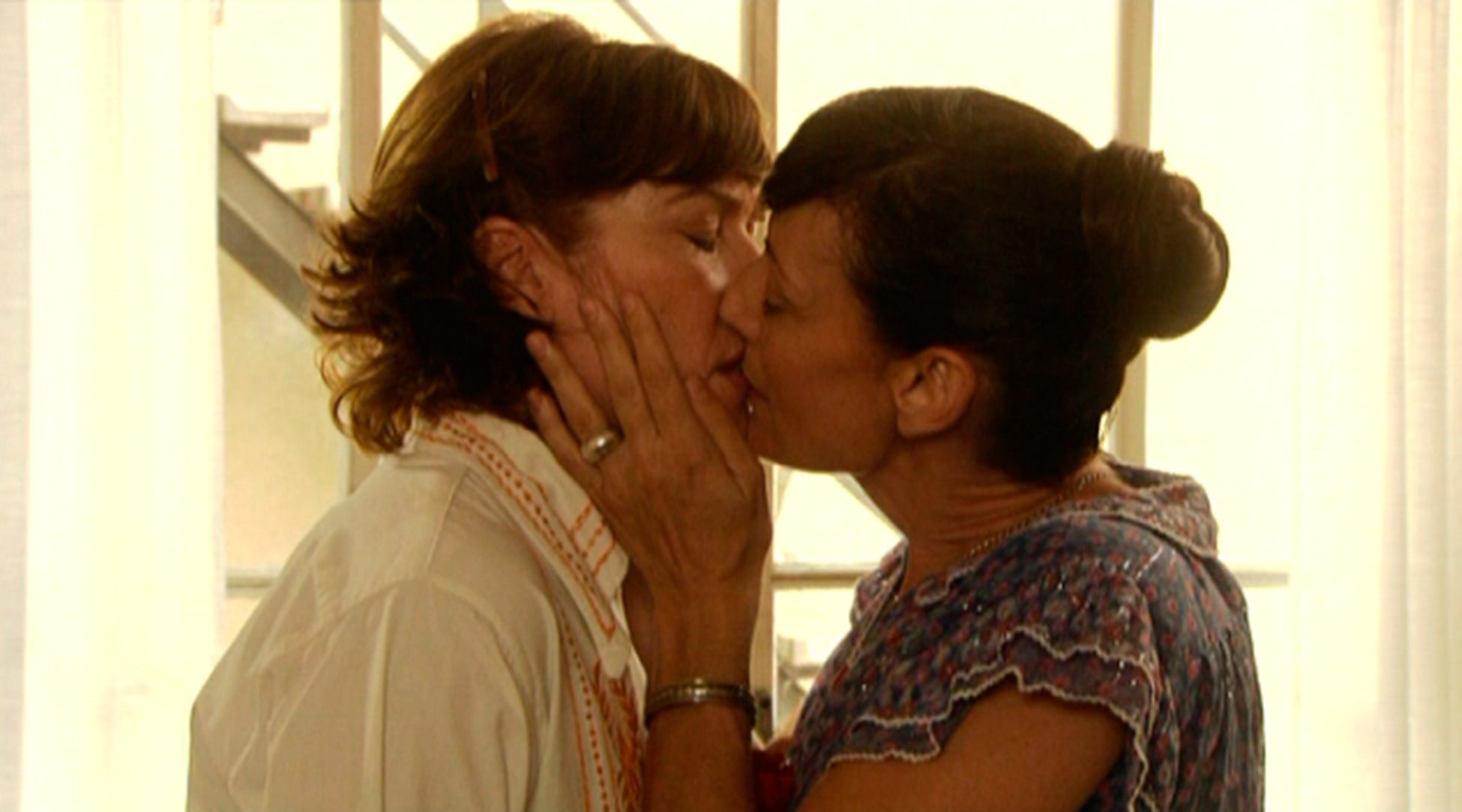We pick some evocative emo flicks.
These three dramas prefer the internal landscape to the external one, exploring their characters’ relationships to love, discrimination, anger and family through conversation and recollection.
La Cucina (Chianti Pictures): Taking place in three kitchens in the same Los Angeles apartment complex, this character-driven drama relies on the talents of its cast and on Allison Wilke’s full-bodied script about love, commitment and sensual pleasure. The L Word’s always-lovable Leisha Hailey plays it straight as Shelly, a pregnant woman whose husband flakes out around the house. She stomps upstairs to complain to her neighbor Jude (Rachel Hunter), who’s cooking up a storm and preparing to greet her lover Celia after a long day at a film shoot. Shelly and Jude laugh together, weighing the pros and cons of lesbian relationships. Shelly’s jealous that Jude and Celia are lovers and best girlfriends. Jude acknowledges it’s true but adds that they also find themselves “competing to vent.” We then learn that Celia’s meal will likely turn cold; she’s exploring a bottle of champagne (and potentially more) with a coy seductress from the set. Meanwhile, back at the complex, 30-year-old Lily (Christina Hendricks) and her older lover Michael (Joaquim de Almeida) share two bottles of vino and a caprese salad, while teasing out their ideas about relationships. The lone guitarist riffing into the night is a neighbor who never joins outright into this discourse about love, but gracefully punctuates and accompanies it. The warmth of the lighting, the role of food and wine, and the closeups of the actors keep things intimate; the viewer feels like a respectfully invited guest.
A Love to Keep (Picture This! Entertainment): Juan Carlos Claver’s epic drama explores the devastating story of two lovers persecuted during Franco’s regime in Spain, when homosexuality was illegal and treated as an aberration that might be abolished through electrotherapy. Schoolteachers Pilar (Carmen Elias) and Elvira (Susi Sánchez) enjoy a contented domestic life together: making love, reading Neruda aloud and collecting dried flower petals in their shared flat. That is, until Pilar’s conservative family, along with the police and the medical establishment, intervene and tear their relationship apart. Under the threat of imprisonment, Pilar is sent to an asylum where her co-inhabitants bash their heads against walls, and a woman who has cooked and eaten her mother stalks Pilar in the common area. She is repeatedly strapped to a chair and tortured while a relentless Zippo-snapping doctor shows her slides of naked women. These four years of aversion “therapy” leave Pilar’s nerves and psyche permanently scarred. During the 1980s, when the lovers are able to resume their life together in a more tolerant Spain, they find themselves haunted by the damage they’ve sustained. Heart-wrenching in its historical accuracy, this Spanish film (with subtitles) explores homophobia’s darkest personal effects. (picturethisentertainment.com)
Steel City (Peace Arch Entertainment): Notable for its superb performances, this contemplative indie is about working-class men and their bruising and healing family relationships in middle America. It begins with a truck accident that leaves a woman dead and Carl Lee (John Heard) behind bars. Young adult PJ (Tom Guiry) visits his dad, Carl, in jail and his angsty older brother at the steel mill. Both are trapped. PJ tools around his blue-lit small town in the family’s dented truck, trying to make ends meet after losing his dishwashing job. Ugly Betty’s America Ferrera plays the patient woman who shows PJ how to love. Raymond J. Barry received an Independent Spirit Award nomination for his portrayal of PJ’s no-bullshit uncle Vic, who teaches his slacker nephew new respect and discipline. The alt-country soundtrack serves as yet another introspective character. Now out on DVD, Steel City is one of the better recent films to address the subtleties of performing a particular brand of masculinity while ridden with remorse, anger and sadness. While their first instincts may be to deny their feelings, and to break things, the men of the Lee family confront plenty of emotion in this carefully directed film by Brian Jun, who also wrote the script. (peacearch.com)
